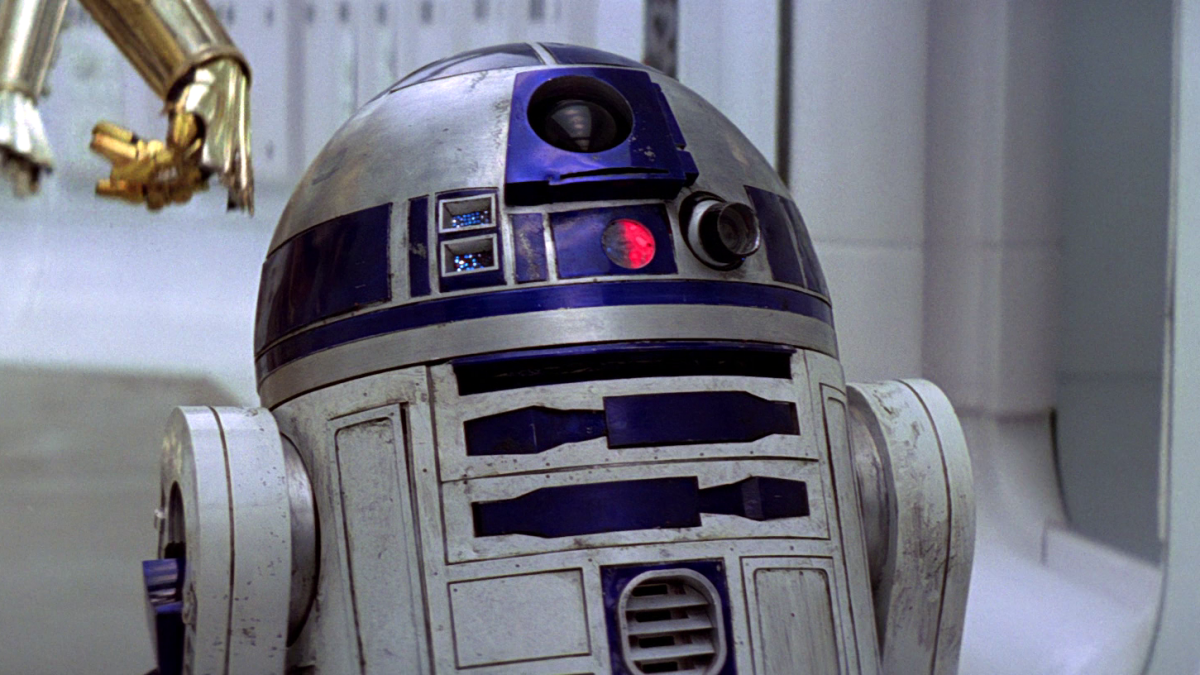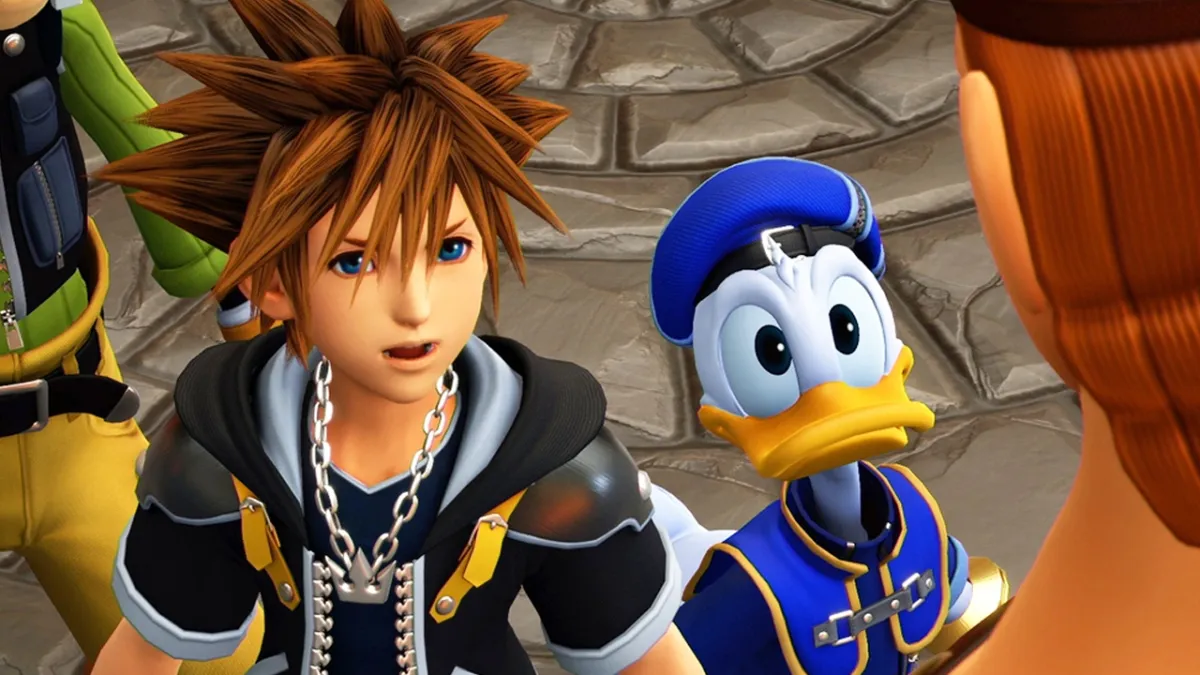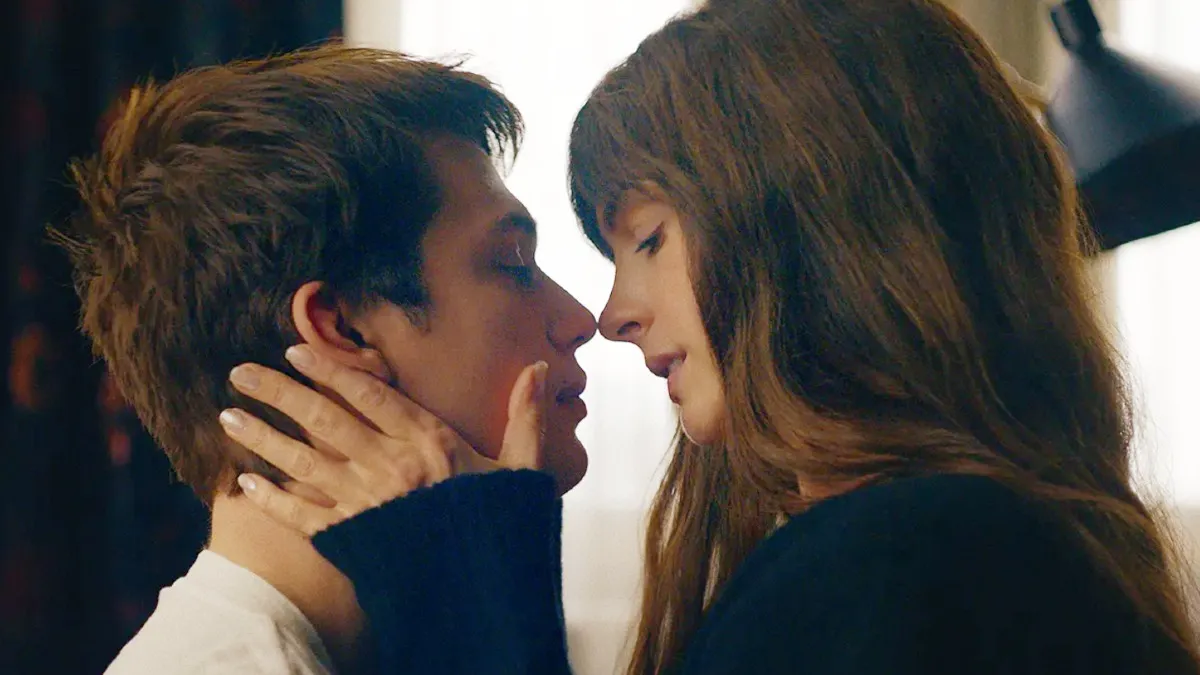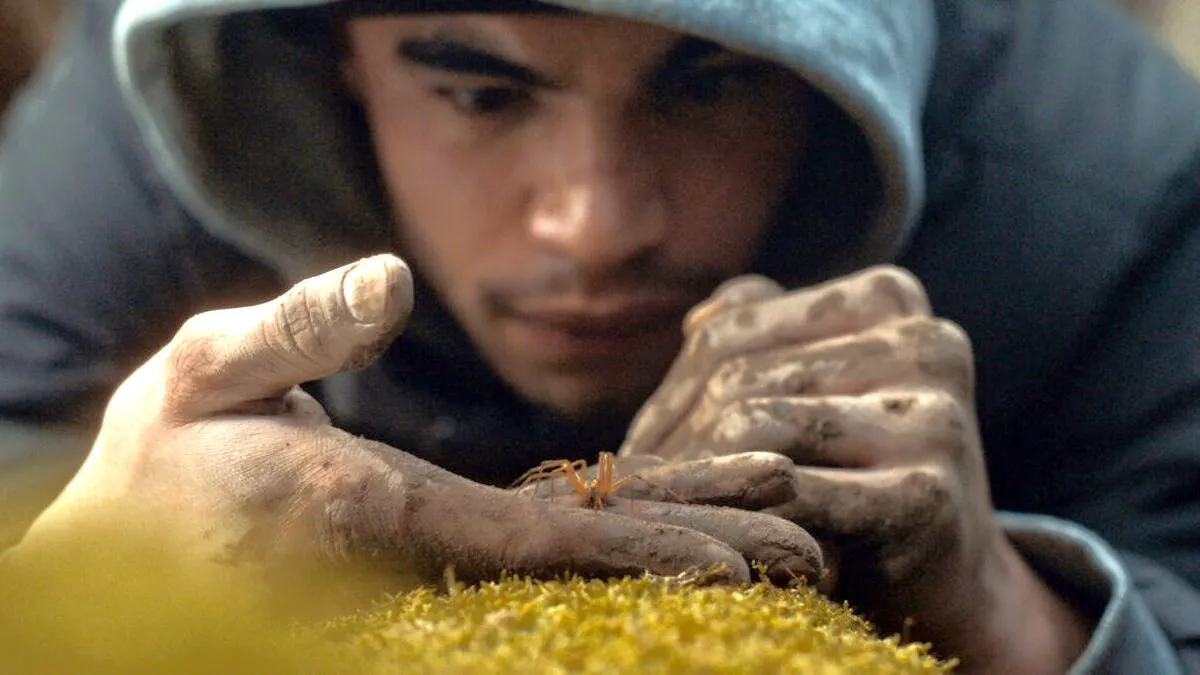
At first sight, Paddington Bear looks monstrous, his creepy photorealistic fur bringing to mind 2010’s astonishingly misconceived Yogi Bear. You can almost hear the soft, squelching sound as audience’s hearts sink, the sound of teeth gritting as they prepare for yet another sacrilegious plundering of a beloved children’s classic. What nightmares are we going to have to endure? Is Paddington Bear going to have an attitude? Is he going to wear a puffa jacket? Oh god.. he’s going to rap, isn’t he?
This consuming sense of dread isn’t director Paul King’s fault. It’s just that we’ve been burned so many times by overblown, gagless, soulless cinematic abortions that we expect the worst; to look into the eyes of a CG bear is to see a grinning studio exec staring back (probably doing some warped approximation of the hated “Dreamworks face”).
This is a pity, because Paddington is secretly and surprisingly, really pretty wonderful. Adapted from Michael Bond’s classic children’s short stories, the film follows the efforts of an illegal immigrant who tries to successfully assimilate into British society. That immigrant, hailing from “darkest Peru,” is a young, polite and helpful bear named Reeeeaahhggg (teeth snap). It turns out that his bear name doesn’t quite play in London so he’s quickly renamed Paddington (after the station he’s found in) by the family that takes him in.
The meat of the film follows Paddington’s (voiced by Ben Whishaw) efforts to fit in with the Brown’s, his adoptive family. They’re comprised of a grumpy stick-in-the-mud father (Hugh Bonneville), a caring and slightly hippyish mother (Sally Hawkins), a teenage daughter Judy (Madeleine Harris), a young son Jonathan (Samuel Joslin) and their long suffering maid (Julie Walters).
They all get swept up in Paddington’s quest to search for the explorer that visited his bear family in Peru. This moustached, stiff-upper-lipped man waxed lyrical about Britain, introduced the bears to the joys of marmalade and told them they’d always find a friendly face if they ever visited London. On top of this, Paddington and the Browns must avoid the predations of sinister taxidermist Millicent (Nicole Kidman) who, along with nosy neighbour Mr. Curry (Peter Capaldi), is determined to make Paddington the prize exhibit in the Natural History Museum.
It’s a feather-light plot and largely the vehicle for a parade of genuinely funny jokes. There’s the expected legion of bear-based punnery, with my favourite being a satnav gag that tells someone to “bear left” just as Paddington unexpectedly flies past the window. But these make up just a fragment of an absolute torrent of jokes, the frame packed so tight with them that it approaches classic Simpsons levels of gag density.
The comedy is elevated by some of the most impressive production design I’ve seen in quite some time. Taking obvious inspiration from Wes Anderson’s precise styling, the Brown’s house directly echoes the The Royal Tenenbaums‘ 111 Archer Avenue. The central spiral staircase features a fantastical painted tree that curves around the round walls, the leaves subtly reacting to events around them. Each bedroom in the house is similarly Tenenbaums flavoured, acting as an expressionistic visual representation of the mindspace of each family member. These location are crammed with delicious visual detailing, giving you the impression that this isn’t some soulless corporate cash grab, but rather a genuine labour of love.
The care that’s gone into the movie also surfaces in its refreshing humanism. Paddington is an illegal immigrant who stows away on a boat to reach the country; he ends up cold, hungry and homeless on the streets of London. Modern Britain is far from the friendly place he’d been led to believe, Londoners jostling him from side to side and ignoring his plaintive, polite requests for help. Even Mr. Brown only grudgingly takes him in at the insistence of his family; displaying a very British xenophobia towards foreigners and, more specifically, refugees.
Paul King nails his colors to the mast by having a characters explain that “it’s like Britain has forgotten how to treat strangers.” These are prescient words given the current political climate. We’re currently experiencing the stratospheric rise of UKIP, a nationalistic far right anti-immigration party for whom all problems can be traced to UnBritish elements in society. Their success in the polls have resulted in calls to forcibly repatriate migrants, restrict their access to public services and a demonization campaign in the media. Britain has always felt suspicious of foreigners, but lately it seems scarily poisonous.
I find it deeply disturbing and depressing that desperately poor people fleeing war or environmental disaster should be the focus for hatred and discrimination. Paddington reminds Britain of its basic humanity, showing us a society that’s immeasurably improved by different cultures. That point is made quite succinctly by King’s choice of having a black calypso band function as a Greek chorus. They sing the songs of the postwar Caribbean immigrants; the positivity and optimism of the lyrics standing in sharp contrast to the cold 2014 streets. A children’s comedy about a polite bear was the last place I expected to find a bitingly sharp rebuttal to xenophobia, but Paddington‘s political bite can’t be denied.












